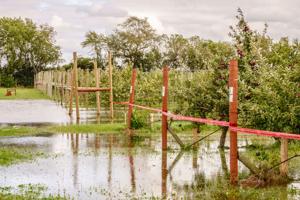(The Center Square) – A ruling by the nation’s highest court is being called a victory for Illinois farmers.
The U.S. Supreme Court said the Biden Administration’s Waters of the United States rule under the Clean Water Act extends to “only those wetlands that are as a practical matter indistinguishable from waters of the United States.”
The Sackett v. EPA case goes back to 2004. Michael and Chantelle Sackett were building a home in Idaho when they were told they could not backfill a lot with dirt because the property was on wetlands adjacent to a tributary.
“It’s a huge win for our farmers here in Illinois and throughout the country because with [the ruling] the Supreme Court came down on with the Sackett case, it really eliminates 20 years of what we’ve termed judicial confusion,” said Mark Gebhards with the Illinois Farm Bureau.
A majority of five judges agreed that the Clean Water Act only applies to wetlands that have a continuous surface connection to bigger bodies of water, where it is difficult to tell where the waters end and the wetlands begin.
It is a stricter interpretation than the one the Biden administration has been using, commonly called “WOTUS”, which specifies that the wetlands have to have a “significant nexus” with a body of water.
“Does the term encompass any backyard that is soggy enough for some minimum period of time? Does it reach ‘mudflats, sandflats, wetlands, sloughs, prairie potholes, wet meadows, [or] playa lakes?’ How about ditches, swimming pools, and puddles?” Justice Samuel Alito wrote in the opinion.
“This ruling is the law of the land and directs the Biden administration to revisit WOTUS and issue a clear rule that doesn’t require farmers to hire a team of attorneys to care for their land,” said Illinois Farm Bureau President Richard Guebert Jr. in a statement.







